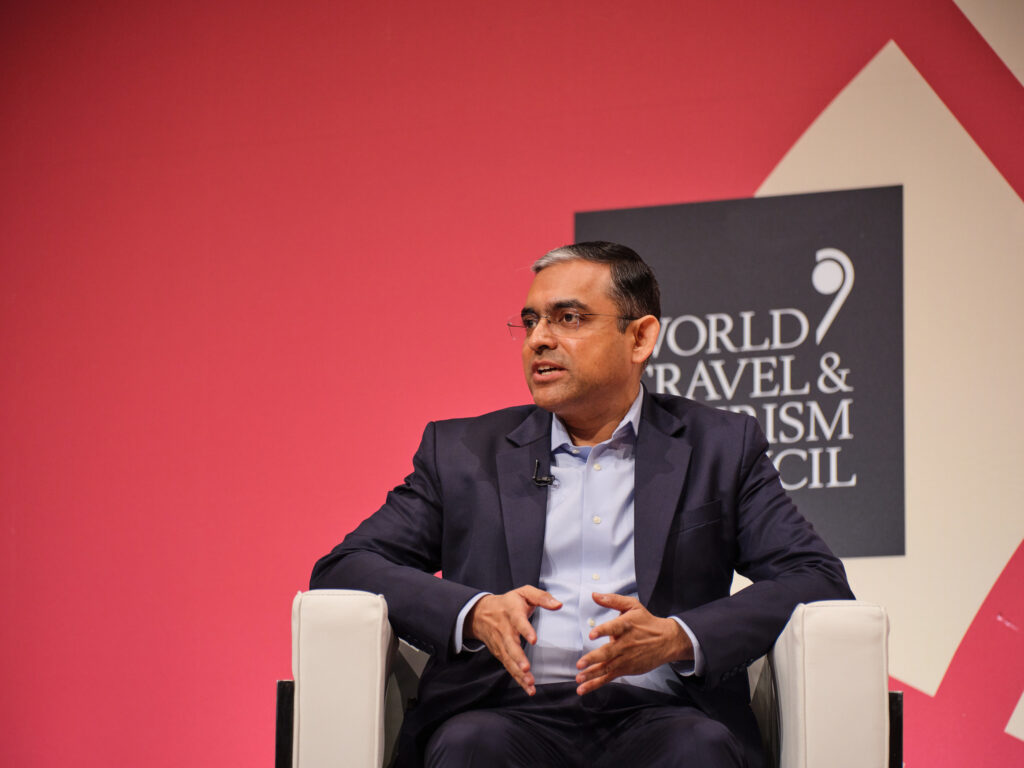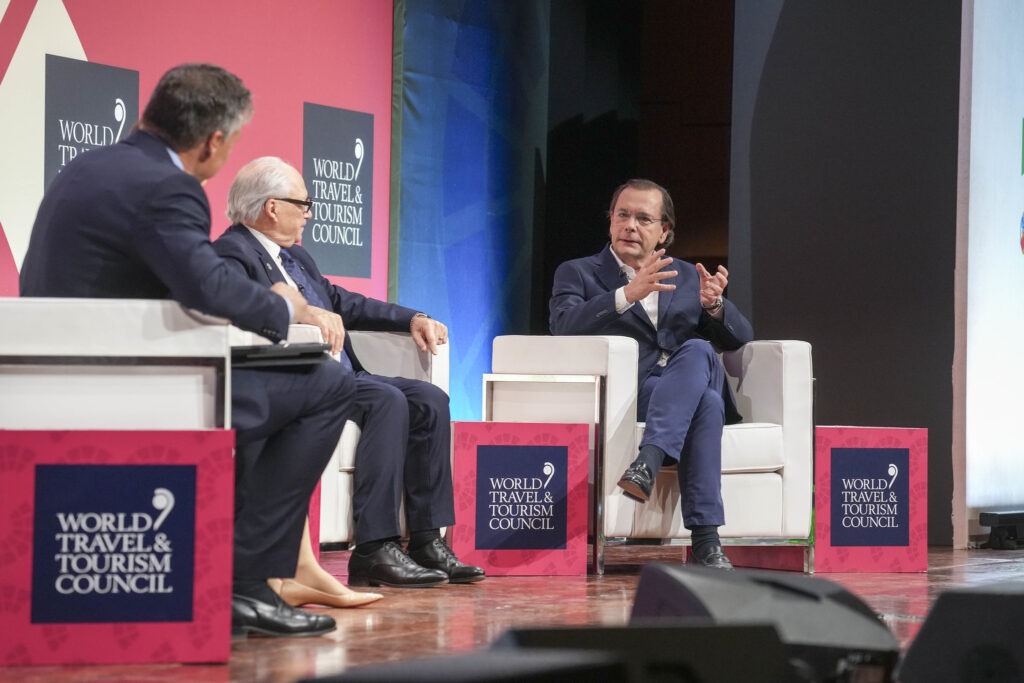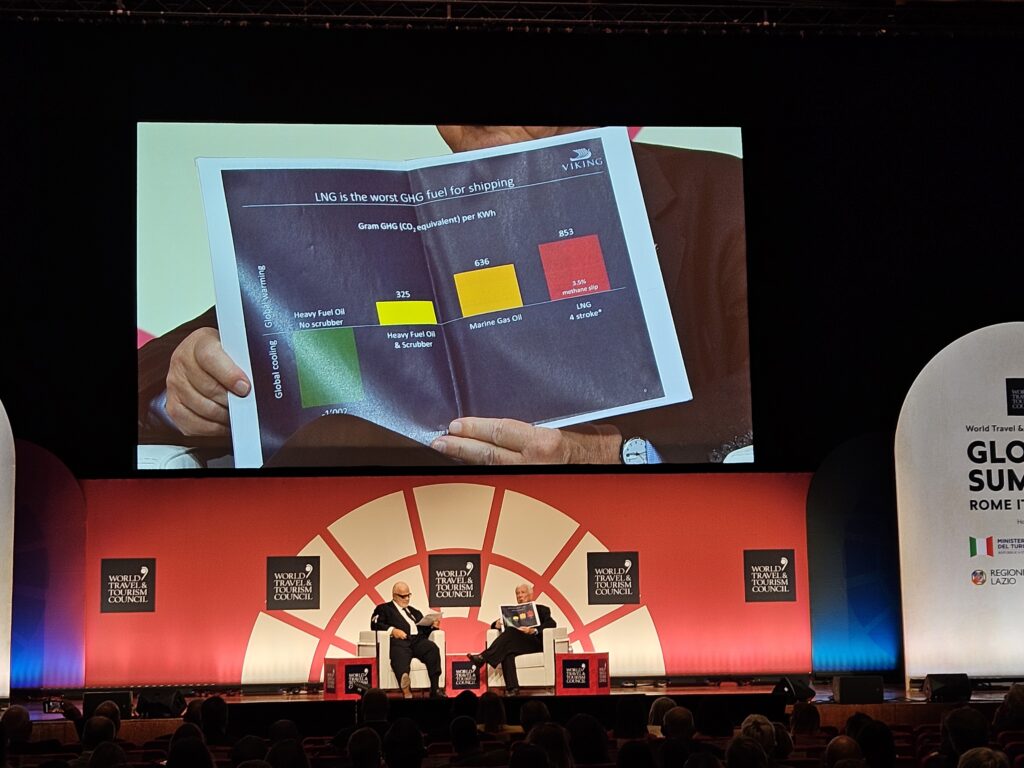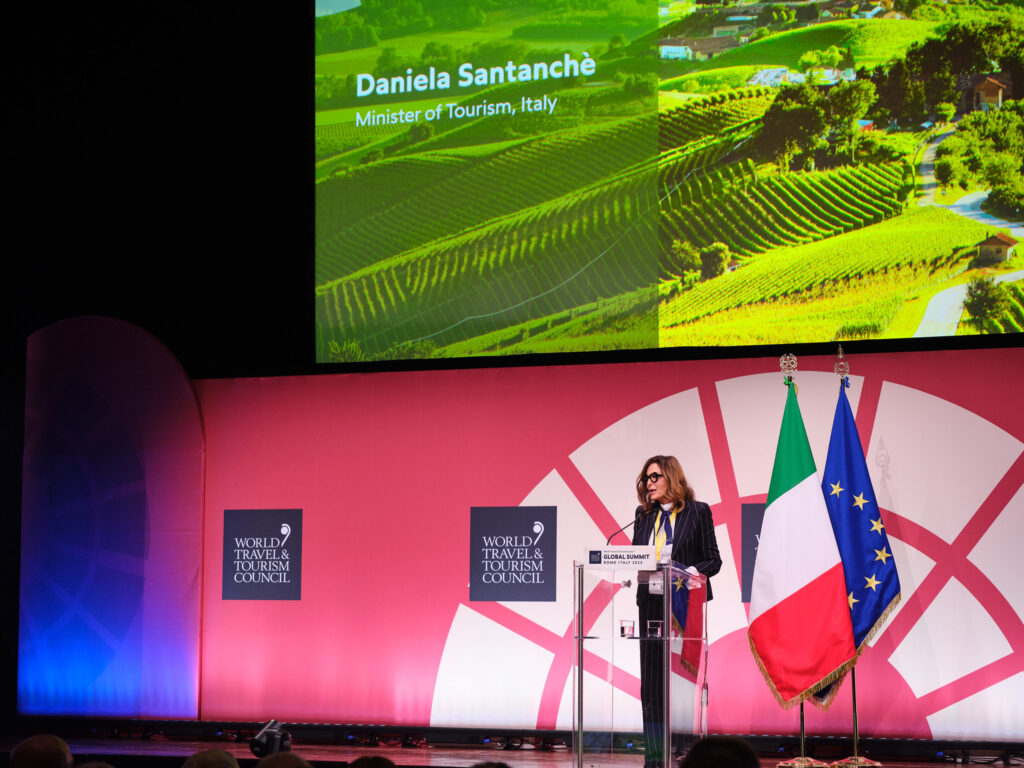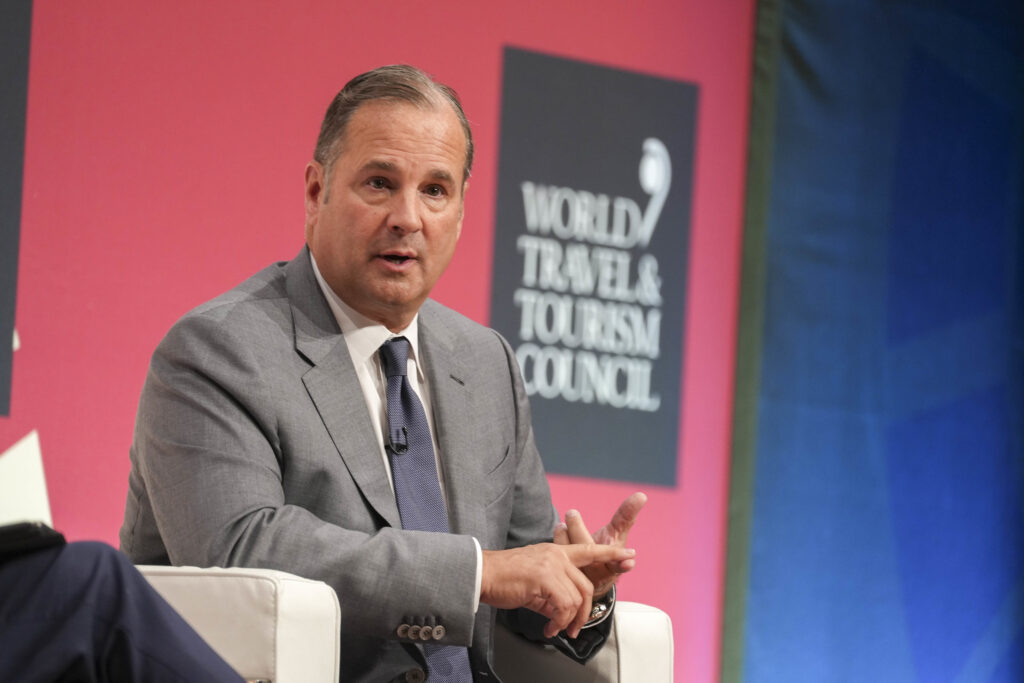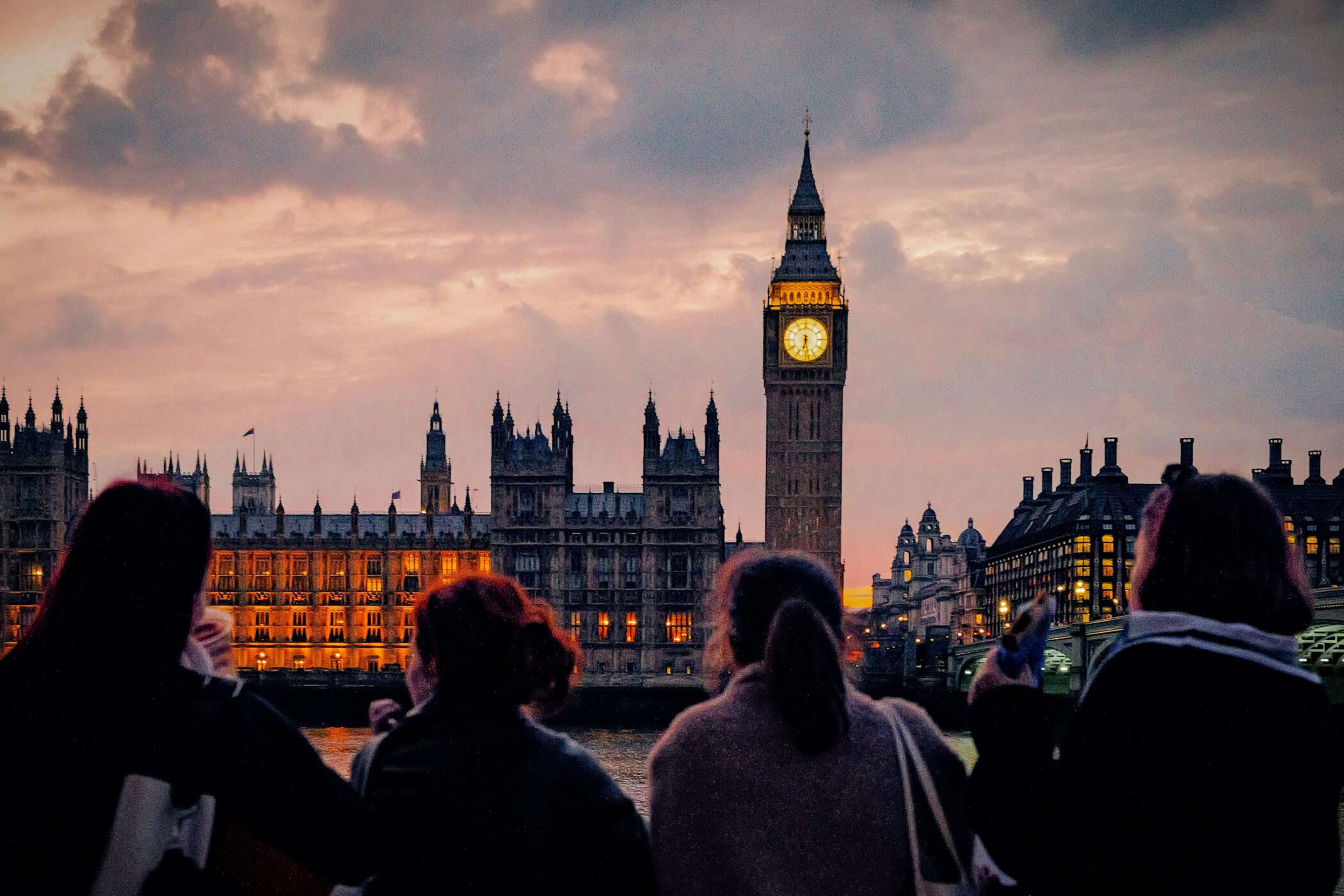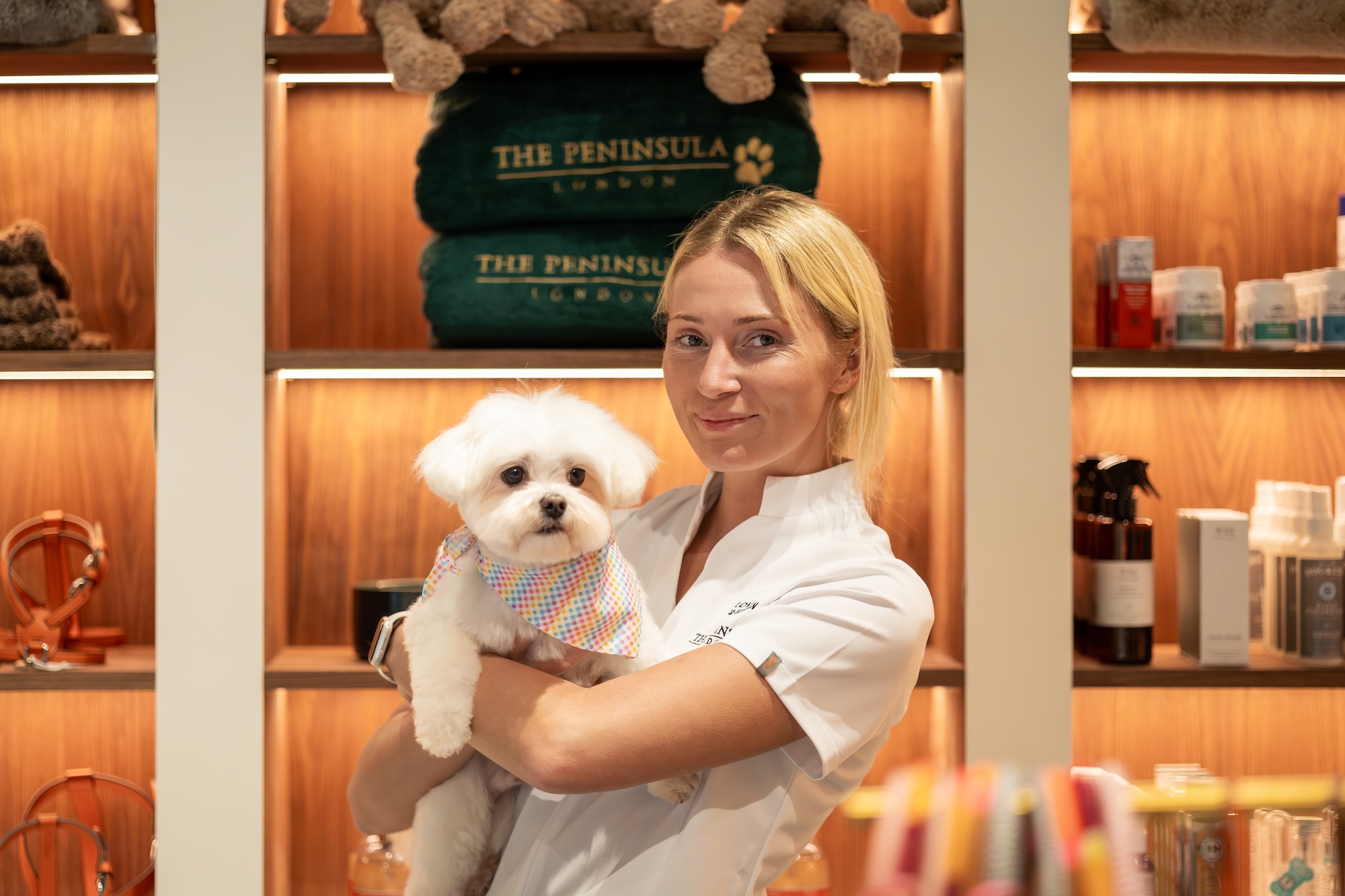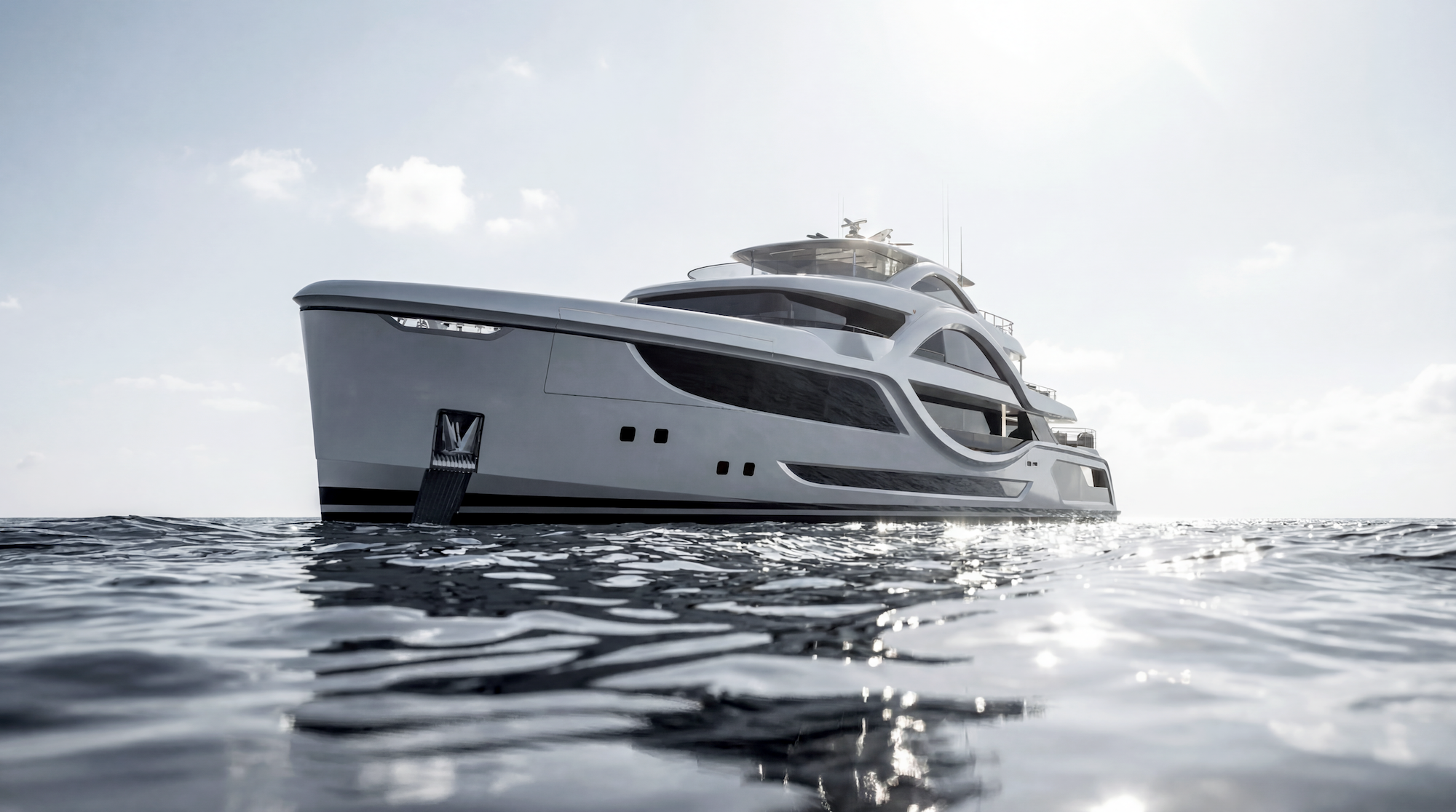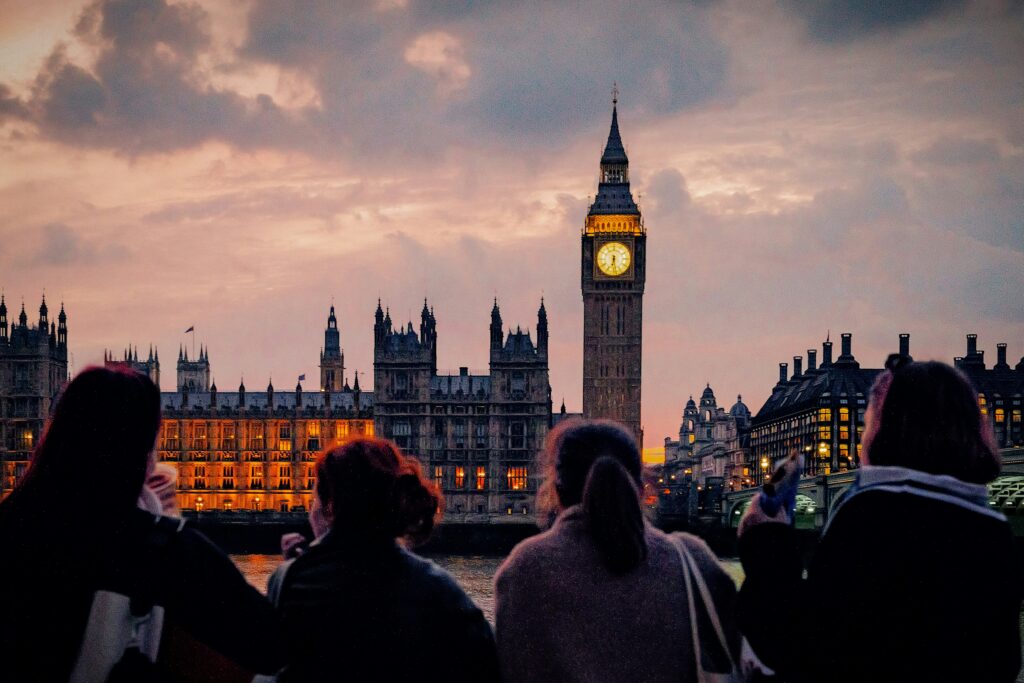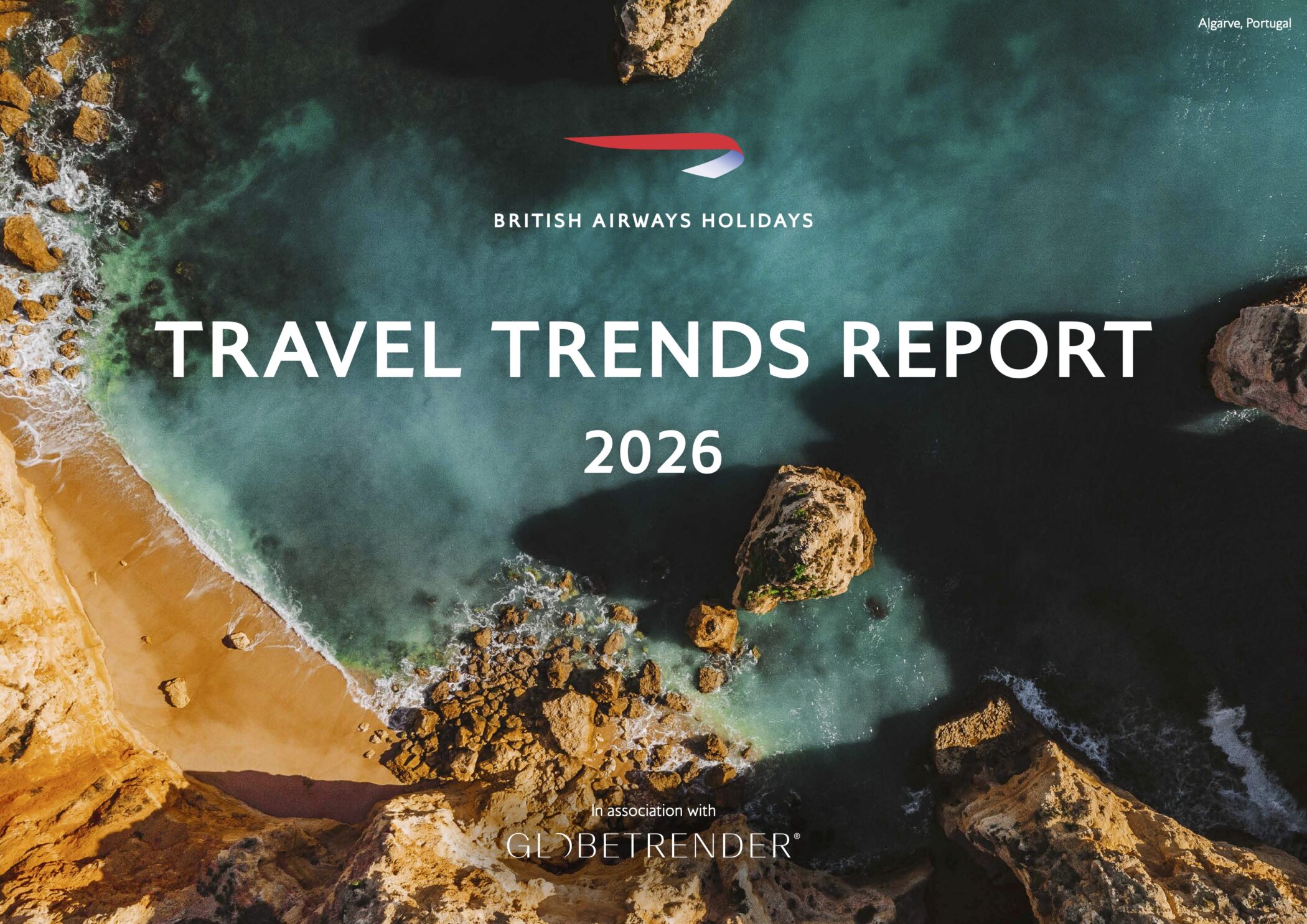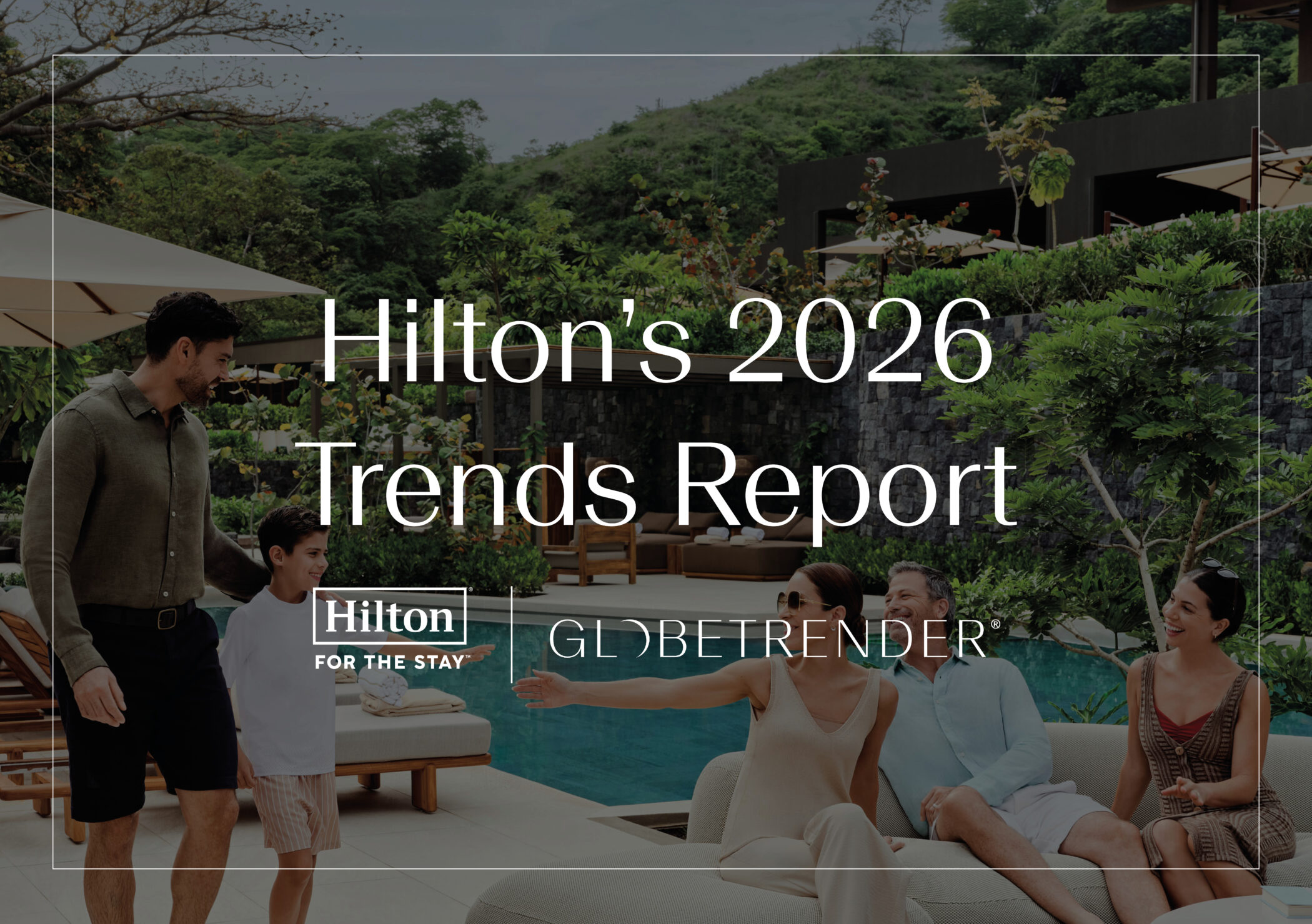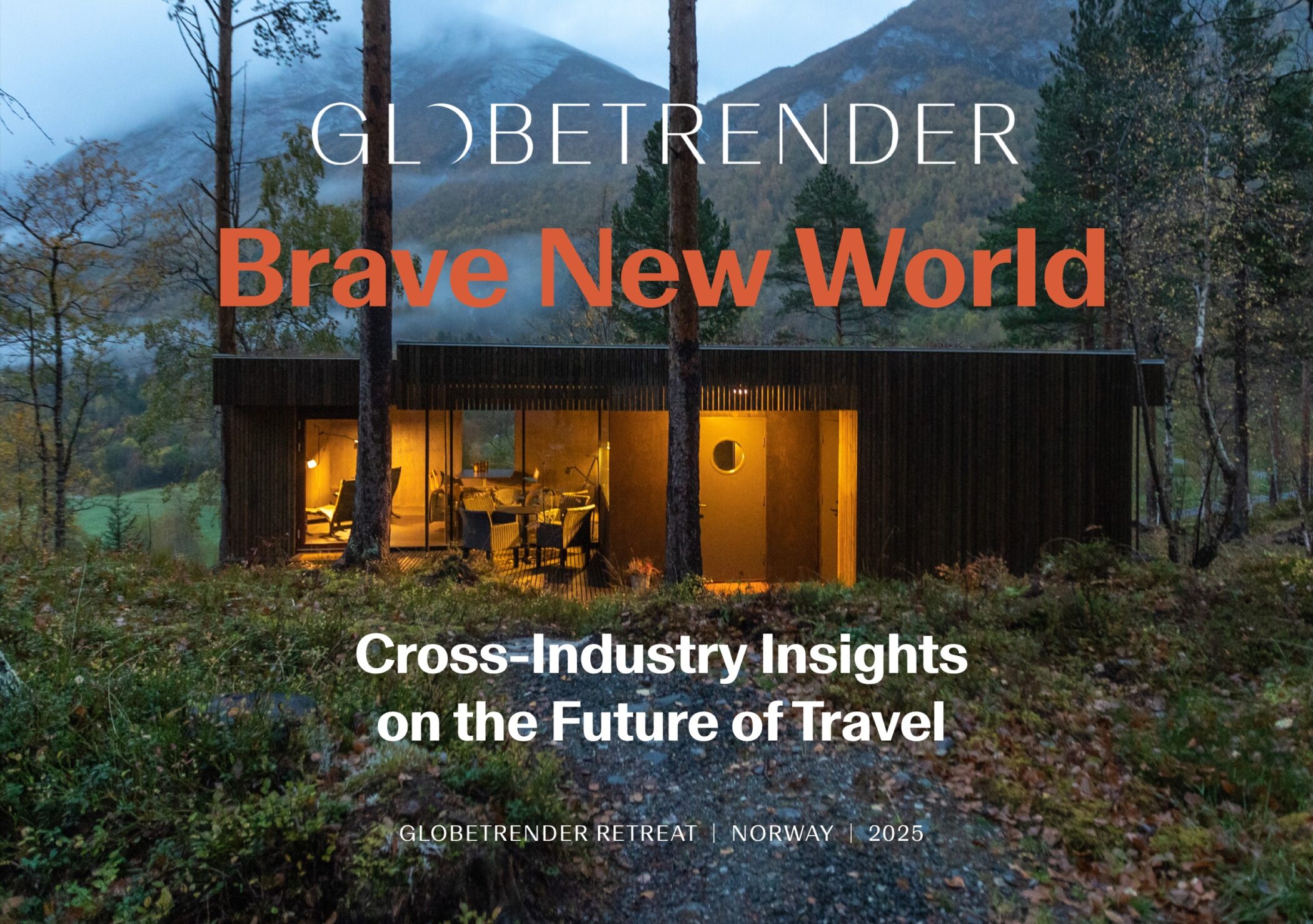Surprising Insights from the WTTC 2025 Global Summit in Rome
At the WTTC 2025 Global Summit in Rome, leaders debated the future of travel, from tour guide extinction and intermodal journeys to 'the three Es' and sustainability. Robbie Hodges reports
This week, the world’s leading voices in travel and tourism gathered in Rome for the World Travel and Tourism Council’s annual summit – a three-day meeting of industry pioneers, policymakers, and media. While every summit shares the same mission of addressing the sector’s most pressing challenges, the focus shifts each year, shaped by global trends and the outlook of the host nation.
For 2025, that lens was distinctly Italian. More precisely, il modo Giorgia Meloni: the Prime Minister opened proceedings with a speech highlighting government investment in tourism infrastructure and her conviction that the sector is “an extraordinary generator of wealth and well-being.” (More on her address and Italy's tourism strategy in a subsequent piece.)
Among the ebb and flow of panels and on-stage conversations, there were a few spikes in discussion that prompted pause for thought or debate. We’ve extracted some of those more provocative ideas along with the recurrent themes that featured throughout.
Tour guide extinction
Giorgia Meloni spoke about how Italy cherishes its tour guides: “We’ve committed ourselves to giving dignity to workers outside of their training… We’ve reformed important areas. I’m thinking of tourist guides, which are a unique Italian characteristic that need to be protected.” This embrace of human-led service was echoed by her Minister for Tourism, Daniela Santanchè, who talked repeatedly about “AI as a tool in the hands of man” and not vice versa.
Saudi Arabia’s Minister for Tourism, Ahmed Al-Khateeb, cut humans out of the equation, casting tour guides as collateral roadkill in the AI revolution. Their replacement? Mobile-resident AI guides like Noura, Saudi’s virtual assistant who can translate into 200 languages. “We have to digitalise the unnecessary and keep the necessary,” he said.
“AI will double the travel market”
Trip.com’s CEO, Jane Sun, was very vocal about how transformative she expects AI will be in the years to come. She expressed her belief that streamlined airport processes [facilitated by biometric gateways, AI assistants, predictive analytics and such] would enable airports to process much greater numbers of travellers.
Less convincingly, she recycled the old Keynesian economic theory that tech advances would mean less time spent toiling and more time indulging in leisure. People would increasingly have four-day weekends, she suggested, leaving more time to indulge in tourism. Can’t knock the optimism!
The Direct-to-Consumer breakup
“It’s not you, it’s me.” So says generative AI to the travel brands who have spent decades and billions of dollars cultivating online visibility through SEO. The old search and discovery rulebook is out. But the impact of generative search won’t end there. As OpenAI rolls out instant checkout within ChatGPT, brands’ virtual shopfronts are also at risk of becoming redundant. The long-awaited agent-to-agent economy, in which a consumer’s agent will converse and carry out transactions with a brand’s agent – no human input necessary – just inched that bit closer.
Andrea Alori, partner at Bain & Company, acknowledged that brands need to rethink what DTC means in this new era – an era in which new gen AI-powered platforms risk fracturing the OTA dominance of Tripadvisor, Booking and Trip.com. “It’s a new startline for everyone now,” said Guarav Bhatnagar, co-founder of TBO.com.
The future is intermodal
The focus on intermodal journeys that glide across oceans, land and into the air, was a recurrent talking point. The shift is being driven by a couple of forces: consumer interest, on the one hand, but also pressure to disperse tourism away from the main hubs. In this way, intermodal transport is increasingly being positioned from a consumer standpoint as a new way of travelling, but from an ESG perspective as an opportunity to encourage more equitable spread of tourism spend and employment opportunities.
In the summit’s closing address, Paolo Barletta, CEO of Arsenale Group, announced the acquisition of Golden Eagle Luxury Trains, a veteran operator with 35 years of expertise in luxury long-distance rail across Eastern Europe and Central Asia. Barletta revealed that carriages from Golden Eagle’s five-train fleet are already being refurbished at Arsenale’s Puglia factory. With Arsenale’s pedigree – most notably La Dolce Vita Orient Express – and its commitment to Italian design, the move hints at the possibility of a dolce vita–style network expanding across Italy.
On talent
That old sticking point – an ongoing challenge since the pandemic. Many people talked about evolving perceptions of service into a reputable career – something that Italians have done well, said Marriott International CEO, Anthony Capuano. And this is a pressing concern. Even as AI starts swallowing up real-person roles, a WTTC report on the Future of the Travel and Tourism Workforce still estimates that by 2035 demand for workers in travel and tourism will outpace supply by more than 43 million people.
Federico J. González Tejera, CEO of Radisson Hotel Group, acknowledged that one of the major obstacles to future growth is talent. The solution? Reframing service. “How do we recruit and promote talent? It’s true that in hospitality and tourism it was not considered a great career. But that’s our fault. We didn’t offer people careers, we offered them jobs.”
LNG Truther
A theatrical flourish came from Torstein Hagen, founder of Viking Cruises, who used his moment on stage – an otherwise laidback conversation with incoming WTTC Chair Manfredi Lefebvre d'Ovidio – to deliver a surprising sustainability truth.
Earlier this year, Viking famously announced the world's first hydrogen-powered cruise ship. When asked about squaring Viking’s projected growth with criticism of the cruise industry’s environmental impact, he brandished a print-out bar chart, positioning it for all to see on the event’s cinema-style mega-screen.
The chart illustrated grams of greenhouse emissions per kilowatt hours of heavy fuel, marine gas oil and LNG (liquefied natural gas) – the latter of which has been heralded by the International Marine Organisation (IMO) as a sustainability silver bullet. But Hagen, who holds a degree in physics, was quick to challenge that perception: according to the study, LNG in fact contributes the most to global warming, while heavy fuel oil showed a surprising net cooling effect.
“ Besides the growth of your company, do you have something you wanna do?” Manfredi posed as his final question. “If there’s one thing I would probably want to do for the rest of my life,” Hagen replied, “it’s getting this all turned round. They [the IMO] got it all wrong. I don't say I'm a Trump fan, but they got it wrong.”
Tickets for Trevi?
There has been much speculation about whether beloved sites in Italy such as the Trevi Fountain will become ticketed as a way of handling heavy footfall. Daniela Santanchè, Italy’s Minister for Tourism affirmed her stance on privatising public landmarks and sites: People should pay for access, she said. It was received with rapturous applause.
Three Es
Jane Sun of Trip.com shared her vision of travel’s future; one that revolves around three Es – the elderly, emerging markets and events. By “elderly”, she actually means China’s growing swathes of young retirees; consumers in their 50s and 60s with high disposable income. By contrast, Trip’s focus on events, whether Blackpink, Taylor Swift or G Dragon concerts, is a bid for “young millennial kids”.
That wasn’t the only Taylor Swift mention of the conference, naturally. Anthony Capuano, CEO of Marriott International, talked about how Marriott Bonvoy is evolving its relationship with its members from something transactional to emotional. How? “We do that by showing them the breadth of travel and exposing them to experiences,” he said, before offering up an example.
“You may have heard there was a singer named Taylor Swift. What you may not know is that the first five rows of every one of her concerts were filled with Bonvoy members.”





